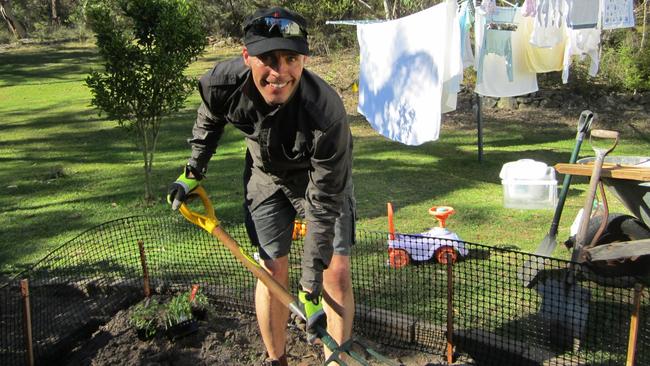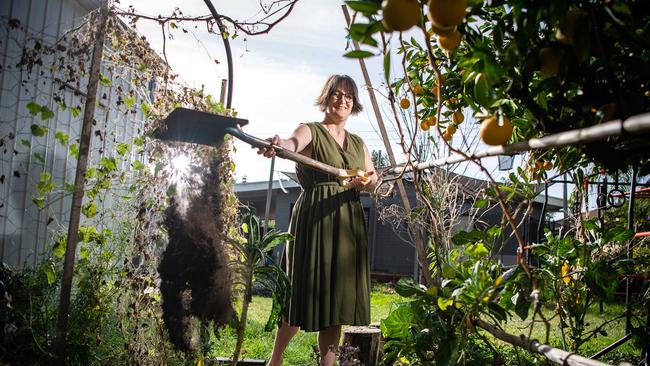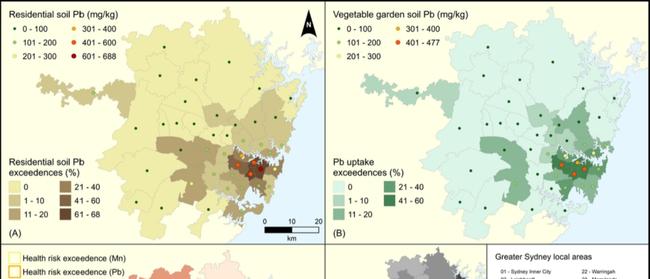Home gardens across Adelaide, SA’s Mid North record dangerously high lead levels in national soil contamination study by Macquarie University
Thousands of Aussie home gardeners are having their soil tested through a national contamination study, with some worrying findings in parts of SA. Explore the map.
SA News
Don't miss out on the headlines from SA News. Followed categories will be added to My News.
Home gardens in suburban Adelaide and in the state’s Mid North have recorded dangerously high lead levels, with a Port Adelaide property testing 15 times above safe lead limits in a national study.
But the overwhelming majority of vegetable garden soil samples submitted by 150 South Australian homeowners tested within Australian guidelines for the toxic metal.
VegeSafe, an initiative of Macquarie University, has released a searchable online map showing soil and dust contaminant test results for 4436 properties nationally.
In SA, almost five per cent of soil samples submitted were above recommended limits including a property near the Port River with an alarmingly high lead-level reading of 4089mg/kg and a property at Burra recording 2662mg/kg.
To use this map, zoom in on South Australia and adjust the ‘sample type’ and ‘contaminant’ menus to see full results – then click on each dot for detailed findings.
Viewing this map on a mobile device? Go here.
Macquarie University’s Professor Mark Taylor said garden soil lead levels above 270mg/kg heightened the risk of vegetables exceeding food standards.
“The places that we’ve identified, looking at this massive dataset, are homes that are older, closer to the city, made of timber, and painted, they all come out as being the ones most at risk,” he said.
“The vegetables of most concern are things like herbs, lettuces, potatoes and carrots.”
He said the program, established in 2013, existed to answer two questions, namely: “Are our soils contaminated?” and “Is it safe produce veggies here?” and then offer advice to home gardeners.
“We didn’t set out to conduct a scientific study as such, our aim was to help the public better understand risks in their gardens and to promote knowledge about environmental health risks,” he said.
“We knew we’d collect some great data, which is what we now have written up.”

Adelaide soils tested to date were “relatively clean compared to Sydney”, where a third of homes tested contained dangerous levels of toxic lead.
But there are still a few places “scattered about” in the suburbs and beyond with elevated lead levels in soil.
These include homes at: St Peters (401.5mg/kg); Dulwich (415mg/kg); Black Forest (431mg/kg); Chandlers Hill (357mg/kg) and Port Pirie (310.5mg/kg).
Alarming high levels of lead were also detected near the Port River (4089mg/kg) and in the mid north at Burra (2662mg/kg).
Emma Hambour at Edwardstown was relieved when she received her VegeSafe test results.
“Our results were good. Having fruit trees and kids who are digging around in the garden, it is very reassuring to know the soil around the property is safe,” she said.
“VegeSafe is a great initiative and it was a really simple process.”

Hana Broughton of Magill is interested in having her garden soil tested too.
“I’ve been planning to do it,” she said.
“Our vegie patch is right at back of the house and I brought the soil in for that, but I’d like to get the soil tested around the house and in the front garden.
“I wonder about areas that have received run-off from the house, which was built in the 1950s.”
Research assistant Kara Fry said the program was designed to be “accessible to all”.
“We ask for a small donation, usually $20 or more if people wish to be generous, from participants to help cover the cost of staff time and laboratory consumables,” she said.
“One of the main limitations for the public is access to information about contaminants in their home environment and the cost of analysis can sometimes be several hundred dollars, for similar analysis using other methods.
“We aim to keep it the program as accessible as possible and use portable X-ray fluorescence spectrometry, a cost-effective method, to screen soil for these contaminants.”
Analysis covers a suite of eight trace metals: arsenic, cadmium, chromium, copper, lead, manganese, nickel and zinc. These trace metals may be elevated in urban environments for a range of reasons and may present a health risk with elevated exposure.
The study clearly shows that lead is the contaminant that most commonly exceeds the Australian guidelines for residential gardens.
Households can also opt into the analysis of dust inside the home, through the new global citizen science initiative DustSafe.
The research is published in the journal Environment International.
VegeSafe is open for testing, visit the website for more information
More Coverage





